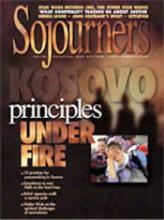During the spring and summer of 1994, Hutu militants organized the murder of more than 800,000 Tutsis in Rwanda. Ordinary Hutus, under government directives, killed their Tutsi neighbors with machetes, spears, and clubs. Despite pledges to prevent another Holocaust, Western leaders ignored the genocide until it was too late. One hundred days after the massacre began, about three-quarters of Rwandas Tutsi population had died.
Gary Haugen directed the United Nations investigation of the genocide in Rwanda. His book Good News About Injustice: A Witness of Courage in a Hurting World opens with his powerful experiences interviewing survivors and uncovering mass graves. He takes the reader to a Catholic cathedral in Kibuye, Rwanda, where hundreds of Tutsis sought safety during the genocide. And he describes how the governor, militants, and a local mob murdered those gathered in that holy place.
Haugens testimony is painful to read. But he wants us to see each victim of injustice not as a flickering image on a television screen, but as a "unique bearer of the very image of God...individually knit within a mothers womb by the Lord of the universe." Haugen reminds us that God was in Rwanda, alongside the victims lying on the cold stone floor of the cathedral.
Reports of genocide, "ethnic cleansing," and human rights abuses may lead Christians into despair rather than action. The suffering often seems too widespread and too far away for us to make a difference. But Haugen wont let those excuses make us give up. As the title of his book suggests, he preaches a message of hope and encouragement. He provides several examples from U.S. history of how ordinary Christians have successfully worked for social justice. He then describes how hearing the testimony of the oppressed can expose the deception and coercive power that make injustice possible.
Read the Full Article
